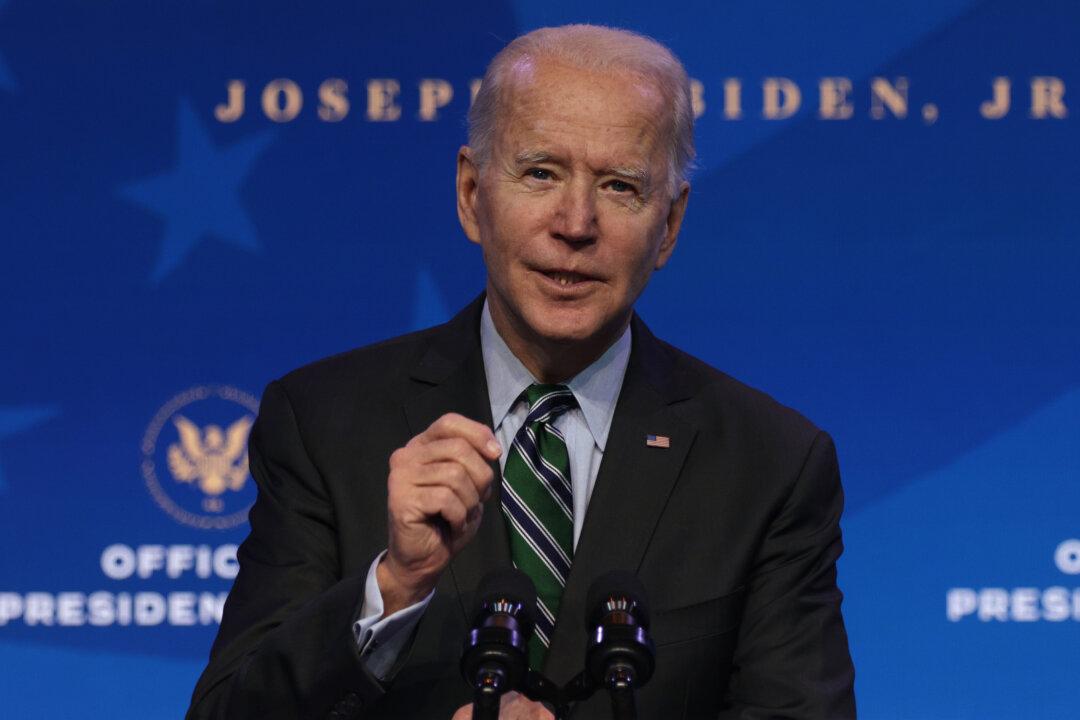President-elect Joe Biden’s transition team has laid out the incoming administration’s priorities for its first ten days in office, including several executive actions to reverse President Donald Trump’s policies and the issuing of a mask mandate on federal property.
“In his first ten days in office, President-elect Biden will take decisive action to address ... four crises, prevent other urgent and irreversible harms, and restore America’s place in the world,” according to a memo by Ron Klain, the incoming administration’s chief of staff.




